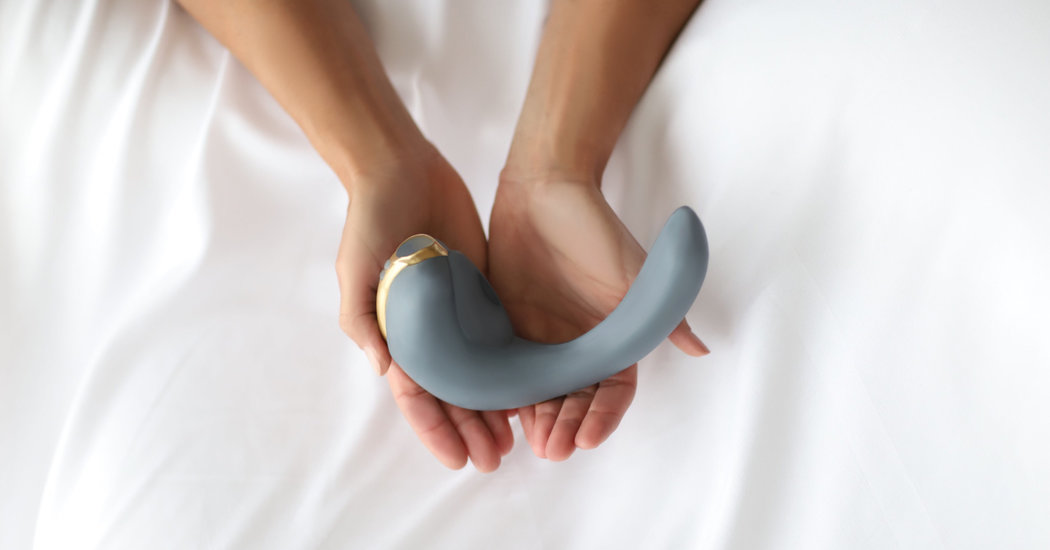
The country’s largest consumer electronics convention has restored an award that it had promised to give — but then rescinded — to a high-tech sex toy for women and gender-nonconforming people.
The convention, CES, is held each January in Las Vegas to great anticipation. An appearance — and certainly, an award — at the show can give a company a crucial boost and help it attract investors.
That’s why the owners of Lora DiCarlo, a start-up based in Oregon, were gobsmacked in October when they were told that their hands-free personal massager, the Osé, would win an Innovation Award in the robotics and drones category — only to learn weeks later that the decision had been reversed.
In an open letter that spurred an outcry when it was published on the first day of the conference in January, the company’s founder and chief executive, Lora Haddock, accused the show of sexism and stifling innovation.
In initially rescinding the award, the organization that sponsors the show, the Consumer Technology Association, had cited a clause in the awards’ terms and conditions that disqualified products deemed “immoral, obscene, indecent, profane or not in keeping with CTA’s image.” Association representatives said later that the device did not fit into any product category.
In her letter, Ms. Haddock pointed out that the show had featured a sex doll and virtual-reality pornography, and accused the organization of having “an obvious double standard when it comes to sexuality and sexual health.”
The episode unfolded after other accusations of sexism against the male-dominated show. In 2018, it was criticized for not initially booking any female keynote speakers, for the second year in a row. Some companies also hire promotional models (often called “booth babes”) to attract attendees.
In reversing its stance on Wednesday, the Consumer Technology Association said it “recognizes the innovative technology that went into the development of Osé and reiterates its sincere apology to the Lora DiCarlo team.”
Jean Foster, the association’s senior vice president for marketing and communications, said in a phone interview that after the outcry about the Osé during CES, the organization realized it had made a mistake and reached out to Ms. Haddock and her colleagues. Ms. Foster said association officials recognized that they had unevenly applied rules barring sex tech companies.
“We realized we didn’t handle it well,” she said.
Ms. Foster added that the show was revisiting a number of practices related to sex tech, gender and inclusion.
Ms. Haddock said that her company was helping the association to rewrite its policies, with an eye toward fostering greater diversity at the gatherings.
“We want to open it up to other founders who may not have felt that they would be welcome,” Ms. Haddock said.
She added that the restoration of the award was heartening for her engineers, who are focused on creating microrobotic functions that simulate human movement.
The product is scheduled to become available in the fall, tentatively priced at $290. Made of medical-grade silicone, it is designed to simultaneously provoke vaginal and clitoral orgasms. (In its marketing materials, the company calls “blended” orgasms “the holy grail.”) It does not vibrate — rather, it makes a “come hither” motion inside the body, the company says. It can also be programmed to fit a user’s preferences.
Its marketing materials say the device is intended for anyone with the relevant anatomy, regardless of gender identity.
Ms. Haddock said the company had patents pending related to robotics, biomimicry and engineering of the device, and hoped to integrate sensors and reactivity in the next iteration.
The company also announced this week that it had secured an additional $2 million in financing, bringing its total raised to $3.2 million.
But it remains unclear whether Lora DiCarlo — or any sex tech company — will be allowed to exhibit at CES next year. Ms. Foster and Ms. Haddock said discussions on that question were continuing.
“We hope to be there,” Ms. Haddock said. “We’re working on it.”







